
Al Warsha Troupe - Qatayef Performance . قطايف
Celebrate 39 years of Al-Warsha’s “Nights” with an unforgettable evening of music, storytelling and theatrical performance.
Recent alumni of the Department for Journalism and Mass Communications and Kamal Adham Center for Television and Digital Journalism Center were recognized for their achievements in student media at the in the 2026 Broadcast Education Association Festival of Media Arts Competition.
The 2026 winners were selected from an international pool of 2,250 entries, representing over 300 colleges and universities, with the student competitions featuring an overall acceptance rate of 20%.
For the second year in a row, AUCTV received an honorable mention at BEA's Dr. Marjorie Yambor Signature Station Competition. Awardees will be celebrated in Las Vegas this April at BEA2026.
Students in audio courses taught by Professor of Practice Kim Fox have built a strong track record of winning in BEA competitions, contributing to AUC’s 12th place position in the 2025 BEA School Rankings for Audio and 18th place ranking in the News category. This year, two awardees were recognized for undergraduate audio projects produced in Fox's classes and received top honors in their categories.
Read more about the awardees below.
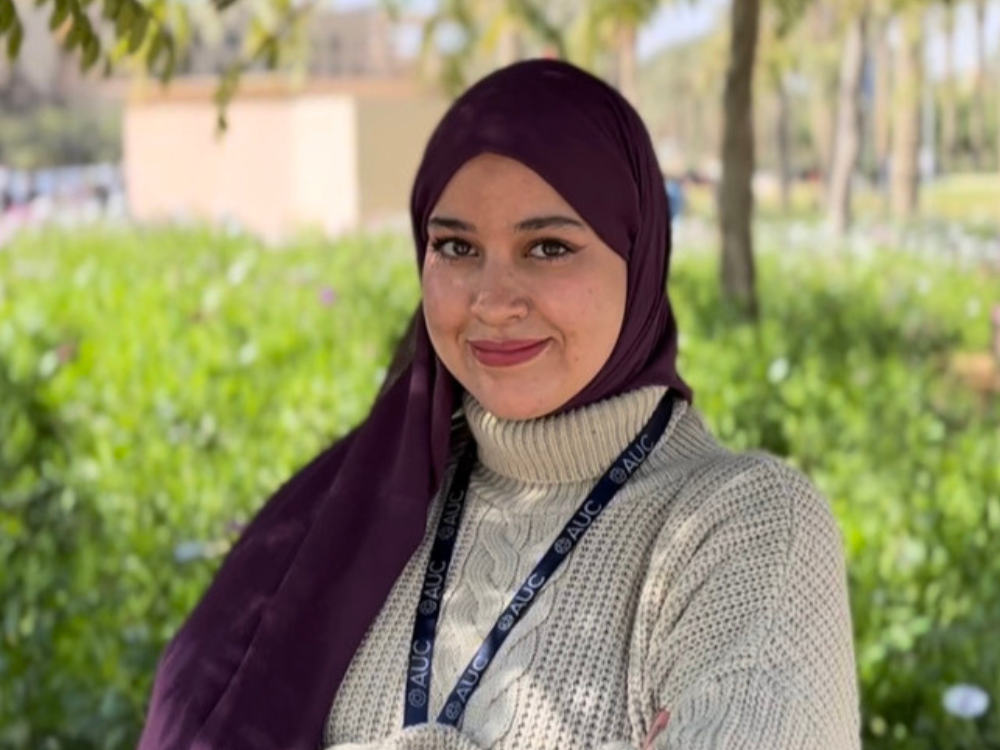
Ouahiba Ait Elhaj Mhand ’25, Multimedia Communication and Journalism
3rd place: Permission to Leave: Christian Divorce in Egypt
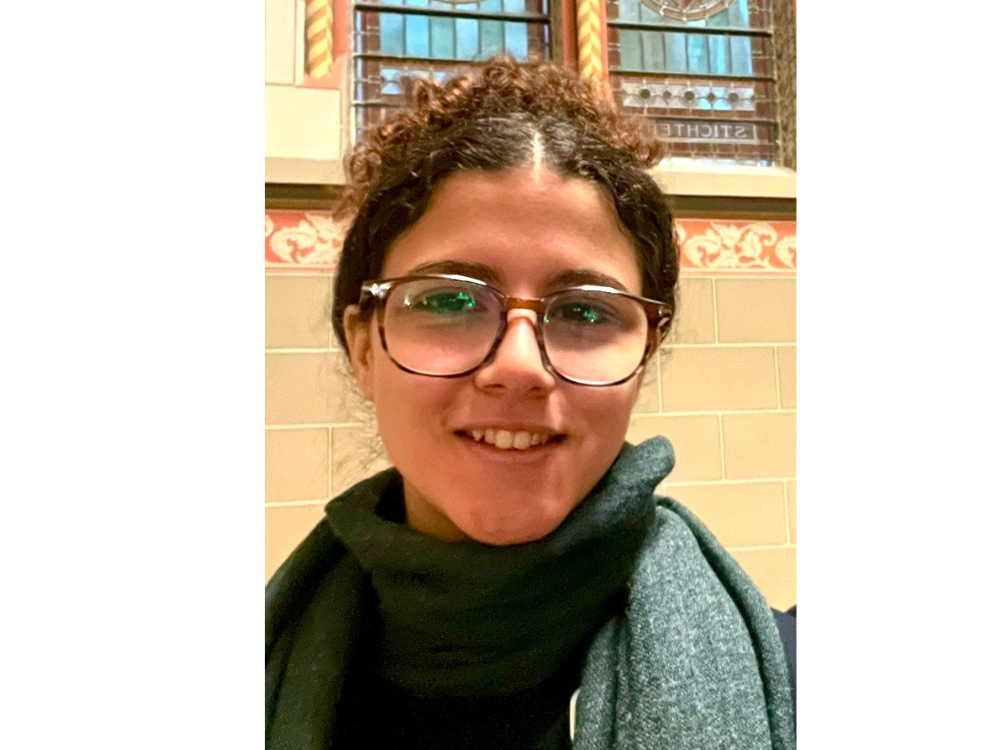
Judi Yassin ’25, Multimedia Communication and Journalism
Award of Excellence: Podcast Promo-21st Philosophy
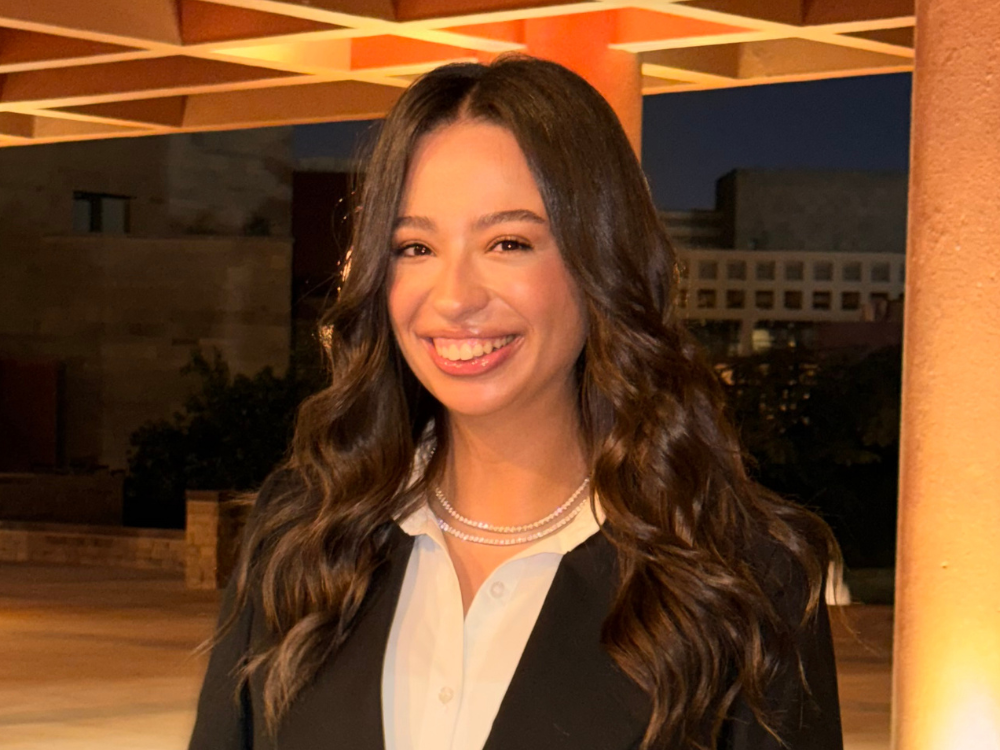
Yasmin Nabil '25, Kamal Adham Center for Television and Digital Journalism
2nd place, "Egypt Breathes Football"

Nour Wael '25, Kamal Adham Center for Television and Digital Journalism
3rd place: "The Nubian Code"
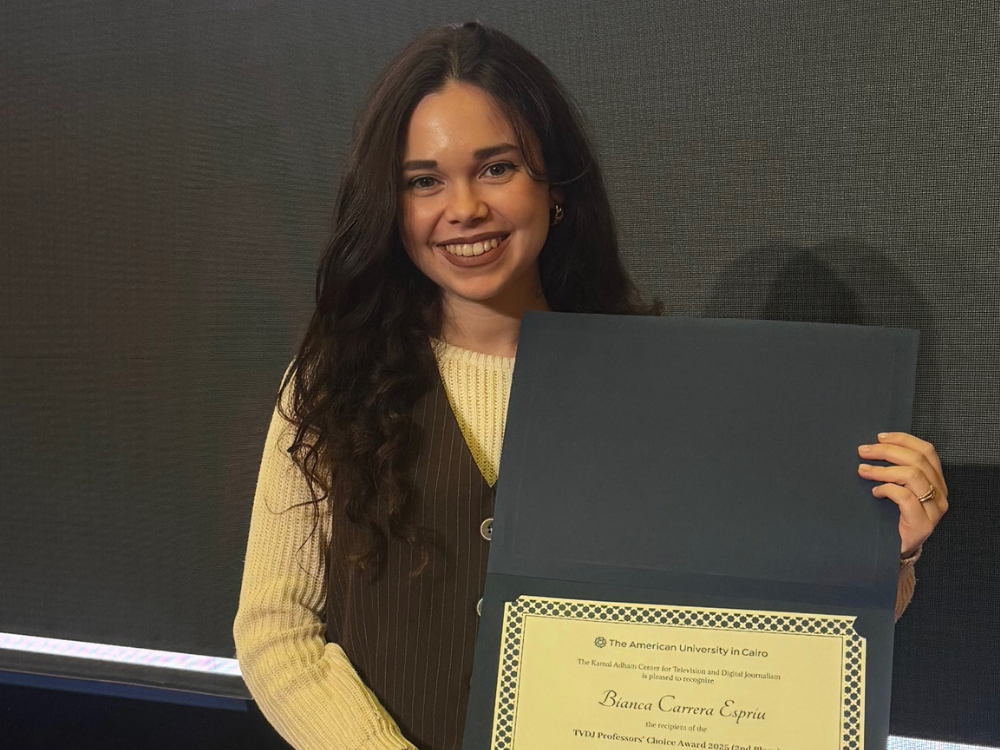
Bianca Carrera Espriu '25, Kamal Adham Center for Television and Digital Journalism
Award of Excellence: "The Artist of the People"
AUCians won several awards in the 2026 Broadcast Education Association Festival of Media Arts Competition.

In just 10 weeks, a cohort of students from the University of Chicago have explored every corner of Egypt. From Alexandria to Luxor, the students from the Windy City are dodging subzero temperatures back home to spend a winter studying Cairo’s history and Arabic at AUC.
“You’re really living with history here,” says UChicago linguistics senior Sam Contreras.
Both daytrips and weekend excursions to Luxor, Khan El Khalil, the White Desert, Tahrir Square and the Grand Egyptian Museum have brought students face to face with Egyptian history.
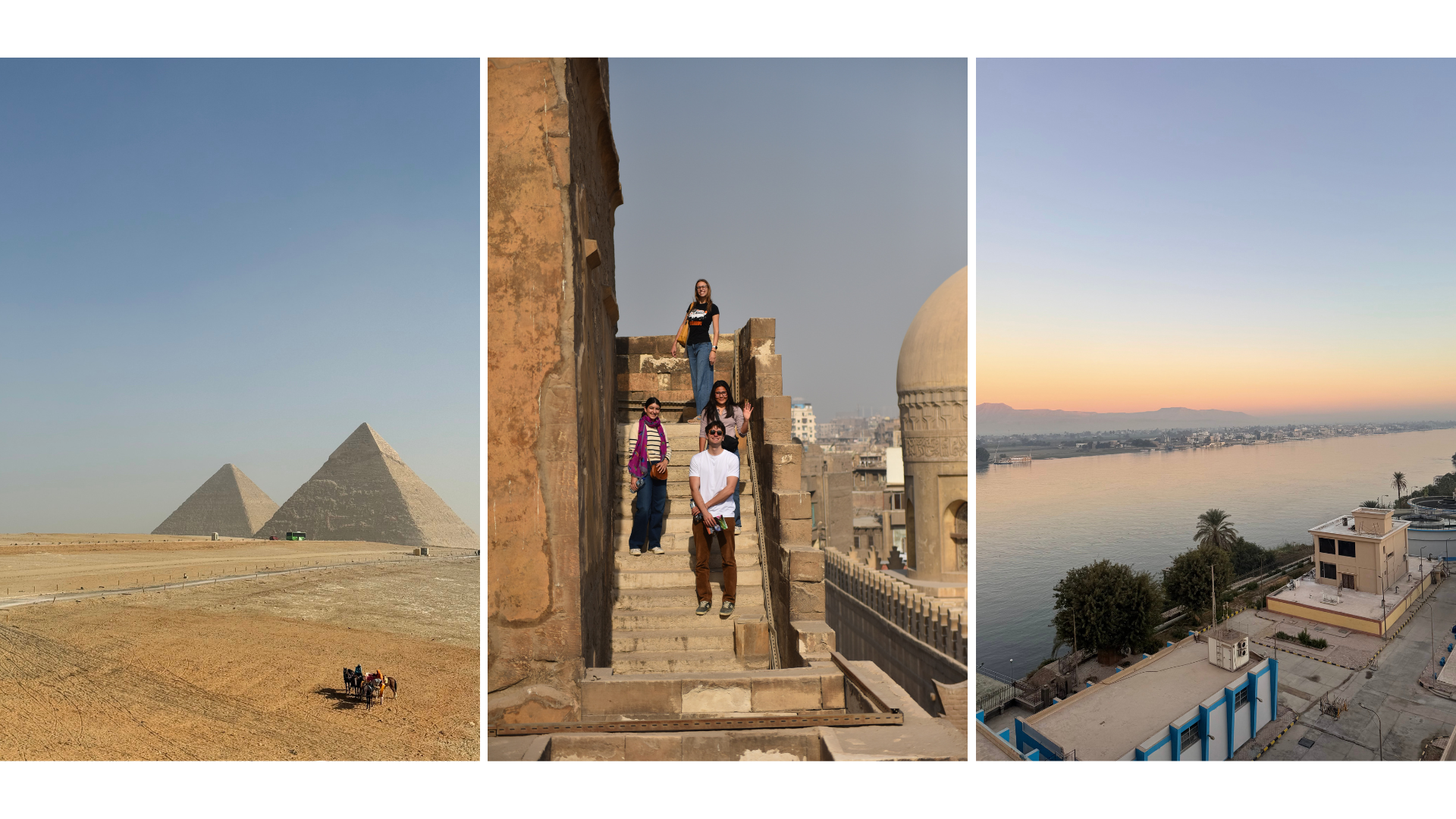
"I feel like we've gotten to see so much of the country. We went way down south, west into the deserts and even on excursions in the week. We've seen different parts of the city."
“Driving an hour or two, you’re at the pyramids, which are thousands of years old. During that time, you pass through Coptic and Islamic Cairo, which are thousands of years old themselves,” Contreras says.
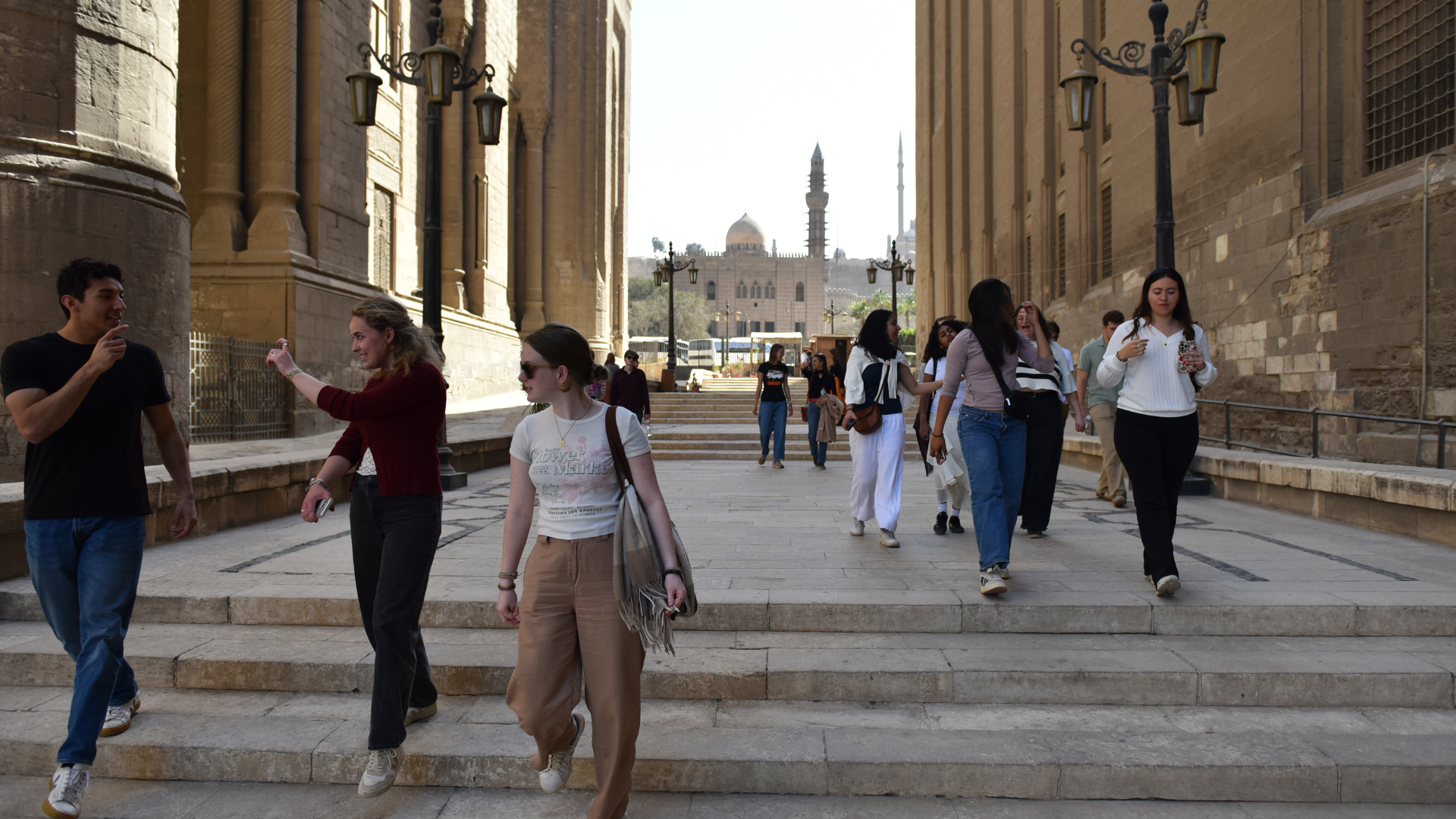
The students are enrolled in Cairo: Middle Eastern Civilizations, a three-class UChicago sequence taught at AUC New Cairo, which takes students through the city’s history from pharaonic to modern times. The core classes are taught by UChicago faculty Assistant Professor of Egyptian Archaeology Anna Latifa Mourad Cizek, Assistant Professor of Classical Arabic Literature Pamela Klasova and Lecturer in the Department of Middle Eastern Studies Abdallah Soufan. In addition to studying Cairo’s history, students take Arabic classes taught twice a week by AUC instructors.
UChicago economics junior Teddy Robinson grew up in an Arabic-speaking area of Miami, Florida, but came to Cairo to continue improving his Arabic. “The Cairo program isn’t talked about enough in terms of how great it is. We have a campus in Paris, we have a campus in Hong Kong. Students there feel like they’re still at UChicago, whereas here we get to come to AUC. We go on all these excursions. Other programs don’t really have all the travel we get to do, and that’s been very enlightening,” Robinson says.
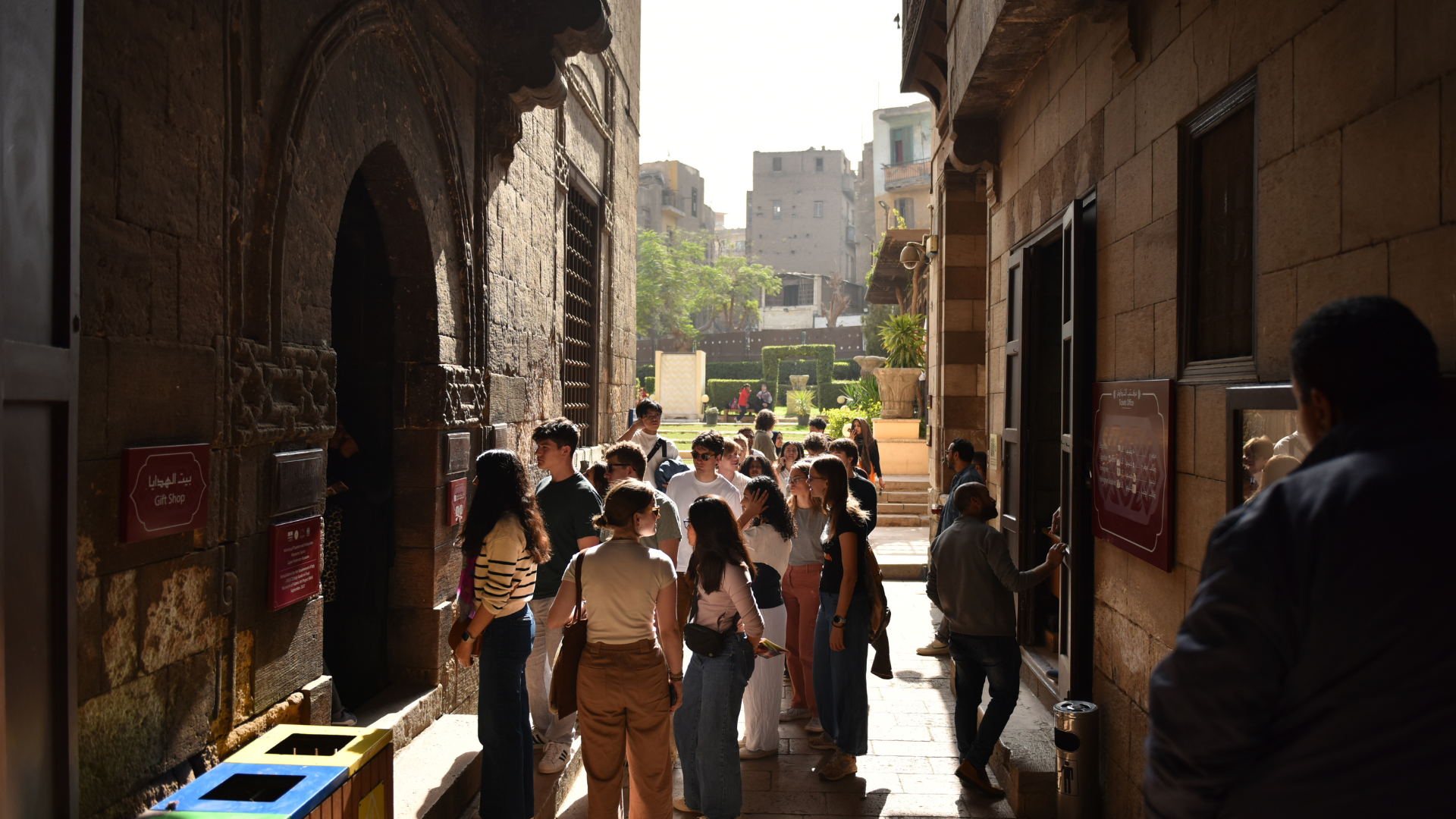
The students also explored Cairo and practiced Arabic with the help of cultural partners, Egyptian students in their age group who previously studied at UChicago and now live in Cairo. “You get a different perspective on young people’s experience in the city,” Kruger says.
Egypt’s fair weather plus AUC New Cairo’s campus have allowed students to enjoy luxuries usually locked off by a Chicago winter: working outside, practicing their sports and even stargazing.
A group trip to the White Desert was eye opening for Ashley Hayase, a UChicago economics junior also minoring in astronomy and astrophysics. “In the desert, especially, being able to see all the constellations — I didn't realize the size of them. I'd never seen them so clear before.”
Robinson and Hayase are both student athletes, running track and playing soccer, respectively. Hayase says AUC’s facilities have let her stay sharp in the offseason. “Utilizing the facilities has been great. During the winter back in Chicago we rarely are able to actually practice outside at all,” Hayase says.
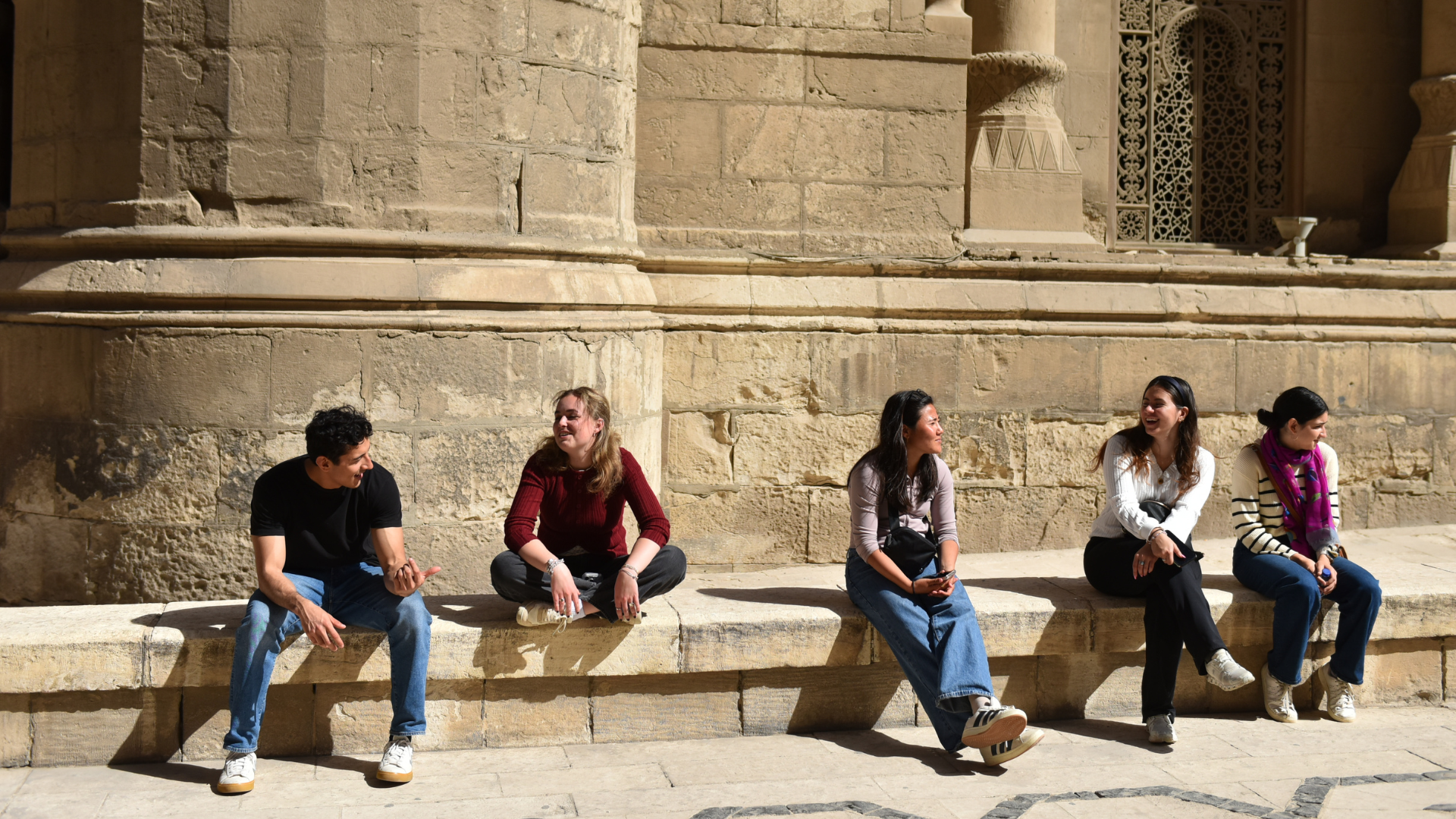
A yearlong civilization studies requirement is needed to graduate from the University of Chicago, and students can meet this requirement by studying abroad for one quarter. Camille Kruger, a UChicago junior studying public policy, chose the Cairo program to experience a new culture beyond the popular study-abroad destinations peers sought out in Europe.
“I feel like we've gotten to see so much of the country. We went way down south, west into the deserts and even on excursions in the week. We've seen different parts of the city,” Kruger says.
“A lot of us have gone and explored Cairo on our own. But even if you didn't do that, you would walk away from this program having seen so much of the city and the country and gaining a lot of knowledge.”


With Ramadan and Lent falling on the same month this year, many members of the AUC community will spend the next few weeks fasting. As students, faculty and staff, knowing the best practices for fasting can be the difference between a failed test or an excellent presentation.
News@AUC sat down with Fayrouz Sakr-Ashour, assistant professor in the Institute of Global Health and Human Ecology, to ask her for some tips and tricks on the best methods for keeping healthy while fasting.
Fasting for Lent and Ramadan started one day apart this year, meaning both Christian and Muslim students will fast at the same time. For Christians, they can only eat one full meal a day on Ash Wednesday and Good Friday, and for the time in between, have certain days they must abstain from meat. For Muslims, they can only eat from sundown to sunrise the entire month of Ramadan. “Fasting is a way of changing food intake,” Sakr-Ashour described. “It can be for religious purposes or for health, like through intermittent fasting. Either way, it's very important to use healthy eating practices while fasting.”
Sakr-Ashour is a physician by trade who became interested in nutrition while working in a hospital and realizing how impactful diet was on patient health. Since becoming a faculty member at AUC, she has researched nutrition for vulnerable populations and nutritional food environments. As AUC community members embark on their fast, Sakr-Ashour shared the most important tips to have a healthy and meaningful fast:
Fasting makes it more important than ever to have high-quality foods in your intake, as your body is already in a more fragile state. For both Christians and Muslims, this means focusing on non-processed, balanced foods that will fuel your body.
While many might want to jump right into a big feast, this — after fasting all day — could risk making you sick or putting you in a food coma. It's best to start with something small, such as a date, which has sugar and fiber. After this, you’ll want to pause as your blood glucose levels rise. From Muslims, this is normally the time for prayer, showing how tradition has evolved to replicate what is most healthy for the body.
These three elements will give you the most balanced meal post-fast. It is best to avoid refined carbohydrates like white bread, rice and pasta. When we’re hungry, our hunger hormone ghrelin is high, which leads us to make bad decisions and be less able to control our portions. For Christians who abstain from eating meat, it is still important to get protein from other sources, such as through fish or lentils.
For student athletes, protein is especially important. Without a balanced meal post-fast, athletes risk not fully recuperating their muscle glycogen stores. Inadequate protein intake over several days of fasting improperly can contribute to muscle loss, especially in athletes training.
Limit excessive coffee, which can increase fluid loss and disturb sleep. Instead focus on food that both hydrates and provides protein, such as yogurt or a glass of milk, and complex carbs like foul, hummus, whole wheat bread. This will help you sustain your body glycogen levels for longer and stop your blood sugar levels from fluctuating in an unhealthy way.
Hydration is incredibly important to remaining healthy while fasting. Emphasize foods that will hydrate you as well as provide protein, such as soup. Don’t forget to continue drinking water throughout the evening, so your body does not get dehydrated during the day.
Cutting out carbohydrates also comes with risks in terms of replenishing muscle glycogen stores. Make sure your meals are balanced, high quality and satiate not just your hunger sensors, but also your body's individual needs.
Refined sugars should be eaten sporadically during fasting, as you easily risk overeating. Focus first on consuming protein and vegetables so you’re not making bad decisions while hungry.
Without proper fast techniques, you risk being fatigued, overeating and not properly allocating your energy. Weight gain and weight loss are both possible when eating patterns are unregulated. It’s important to eat balanced, high-quality foods to avoid the health instability that can come with fasting.
As fasting is an important practice across religions, it is important that all participants are thoughtful about the way they fast in order for it to be the most impactful. “I think the discipline and meditation associated with fasting, paired with the intake of proper nutrition, make the experience more holistically positive,” Sakr-Ashour said. “Failing to fast properly can break down the religious experience. Caring for your health means you can focus on what the practice means, across religions.”
With Ramadan and Lent falling on the same month this year, we asked an AUC nutritionist the best tips for a healthy fast.
